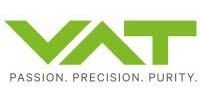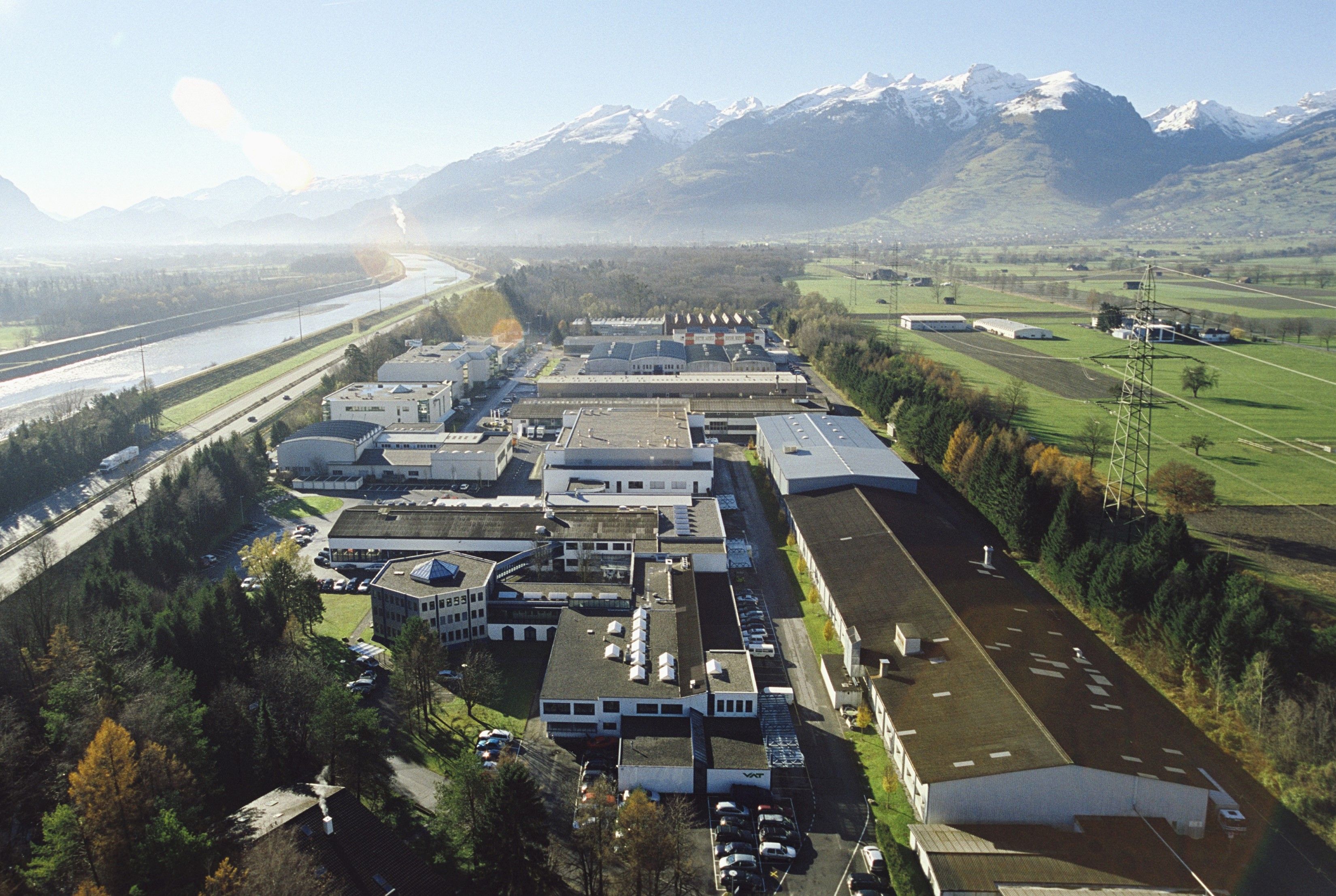VAT Vakuumventile AG
2023
VAT wins seal of approval from ITER
ITER requires perfect, robust metal seals to meet its demanding applications in ultra-high vacuum (10-8 to 10-12 mbar) and heightened radioactivity conditions. VAT Vacuumventile AG, a global leader in the development and production of UHV vacuum valves, based in the Swiss Rhine Valley, Canton St. Gallen, has been working with ITER since 2014 within the Framework Contract for ITER Standardised All Metal Vacuum Valves and since 2016 within the Framework Contract for Elastomer Valves.
The partnership with ITER has delivered a portfolio of vacuum valve solutions, encompassing ITER’s unique requirements. The company understood ITER's specific purchasing, supply, and service needs and developed a tailor-made, uniform valve portfolio. This hallmark approach simplifies the project’s complexity, combining all the valves relating to it, plus their documentation in a dedicated portfolio accessed via VAT's web platform. Considering the long-term nature of the project, VAT and its customer recently agreed that the portfolio remains available until at least 2024 with the option to extend the period. So far, hundreds of all-metal valves and around one thousand elastomer valves have been supplied to diverse ITER project suppliers worldwide

The VAT vacuum valves are used to isolate various sections of the complex vacuum systems used by ITER as well as to regulate gas flows within the systems. Due to extreme temperature and radiation conditions in some of these vacuum systems, VAT had to adjust some of its standard solutions to meet the special ITER requirements. One class of vacuum valves used in these extreme condition areas are all metal vacuum valves. This valve class has no elastomer sealings on the vacuum side, as those would quickly disintegrate under the high temperature and radiation conditions. These valves use an extremely durable hard on hard, or metal on metal sealing technology. The specialty of VAT’s hard on hard sealing technology is its repeatable dynamic sealing property. While the soft on hard sealing technology can only guarantee small amounts of cycles, VAT’s solution can be cycled thousands of times minimizing maintenance requirements. Which is especially valid in radiation effected areas.
ITER’s primary as well as its numerous secondary support, control and safety systems demand high precision, high performance vacuum valves, in a panoply of designs. The list of valves customized for ITER already comprises more than hundred gate and angle valve configurations, varying in size, sealing technology and operation mode. Along with its dedicated valve portfolio, ITER benefits from VAT's uniform documentation, with comprehensive information on each valve readily available on VAT's web platform, saving users time and improving supply efficiency

top: gate valves
bottom: angle valves
left: all-metal valves
right: elastomer valves
A key element in tailoring VAT’s valve technology to ITER’s specification were the adjustments of wall thickness, sealing and material composition to cater to the Tritium environment in the system. Beside the prime use of all-metal vacuum valves, also elastomer-sealed valves in secondary systems were fitted with a new generation of more radiation-resistant elastomer material to provide additional system safety.
VAT’s know-how and skill came into play again with a stream of developments to answer ITER’s requirements for many auxiliary features. E.g. to increase the temperature resistance valve heat sensitive parts like position indicators or cable connections were designed to be place away from the main hotspots on the valve so that e.g. the operational temperature could be increased from 80°C to 200°C. To allow an easy access for any ITER supplier, the ITER vacuum valve catalog has been, freely accessible, placed on the VAT website (www.vatvalve.com/category/iter-vacuum-valve-catalog).Ready for tritium
ITER required its proprietary flange type on all metal-sealed valves. This enhanced flange, based on the principle of the Helicoflex double seal, comprises a tightly wound helical spring surrounded by one or more metal rings offering a specific compression resistance. The space between the rings can be evacuated via a socket on the flange, in anticipation of future operations deploying tritium.
To make sure no tritium, a toxic fuel component, escapes into the atmosphere, VAT summoned its broad vacuum experience from comparable projects. The result is the ITER Type 1 UHV all-metal valve, where a second protective housing is added to the standard one. The space between the two housing layers can be evacuated, with a unique port enabling the monitoring of the interspace. By regulating the interspace vacuum to about 500 mbar, any incipient leaks into the ultra-high vacuum inside the facility or towards the atmosphere can be reliably detected.
The "Absolute Valve" Project

Another key contribution from VAT to the ITER project can be found in the development of an all-metal pendulum gate vacuum valve extending to a world record opening diameter of 1.6 meter, nicknamed the Absolute Valve project. This project is managed by the European ITER agency F4E. An all metal-sealed pendulum valve extending to a world record opening diameter of 1.6 meter, is to be built to isolate the tokamak and the Neutral Beam Injector (NBI) vacuum vessel volumes from one another. The Fusion project’s requirement for up to 3600 open-close cycles pushed VAT’s engineers to consider their proprietary and patented VATRING technology, a “hard-on-hard” sealing method, where all sealing parts are deformed elastically, as opposed to the “soft-on-hard” method, where at least one sealing part (usually copper) is plastically deformed. With repeated closing against a hard metal, such as ITER 316 steel alloy, the risk of the former type developing a leak increases over time. The Absolute valve project has reached the Final Design Review (FDR) stage and awaits a full hardware prototype project kick-off, which includes all associated necessary project steps (manufacturing drawings, tooling and assembly set-up, supply chain management).
Independently from the engineering development going on for various additional vacuum system components, VAT's business approach provides the ITER project with many benefits. The portfolio components are optimized in design, material, configuration, and connections, so that the ITER organisation does not have to compromise on any performance or characteristics. Since the number of variants is reduced to a minimum, ordering and inventory control are facilitated, and spare parts management is greatly simplified.

About VAT Group

VAT is the world's leading developer, manufacturer, and supplier of high performance vacuum valves and system solutions. VAT solutions are used in high-energy physic applications like fusion energy projects as well as in various industry application like the manufacturing of semiconductors for microprocessors, displays, sensors, lighting devises.
VAT employs over 2,500 vacuum specialists worldwide, of which are about 1000 located in the Swiss headquarters in Haag. With representatives in 29 countries, and manufacturing sites in Switzerland, Malaysia, Romania, and Taiwan, VAT provides tailored vacuum valve and system solutions close to all its customers . .
Marco Hopfmann
Product Manager - All-metal Valves
VAT Vakuumventile AG
Haag- Switzerland